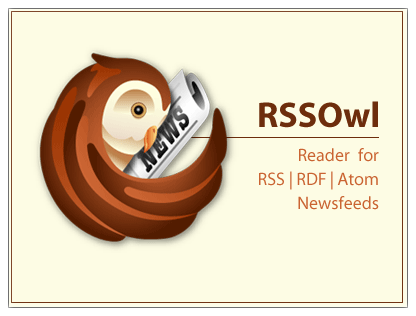Posted
on March 31, 2005, 12:27,
by mjw.
Saw that Caolan keeps a blog describing the OpenOffice.org 2 progress with gcj. He is seeing great speedup from gcj4 native compiled code, but the build times for some parts of OOo are enormous:
Use gcj-dbtool during the build for gcj. This has a huge impact for me building multilanguage langpacks as helpcontent2 is a heavy java user, my experience is a 20hour build with interpreted bytecode and an 8 hour build with gcj-dbtool and -Dgnu.gcj.precompiled.db.path
Tom Tromey posted a status update on gcjx. Still a lot of work to be done for full 1.5 language support. But it looks like there is a lot of progress being made on replacing the current gcj frontend:
gcjx can parse all 1.4 and most 1.5 language features. […]
gcjx does pretty well on jacks – much better than gcj. I think I counted 70 gcj front end PRs that are fixed in gcjx. […]
As of today, I can compile most of libjava using the tree back end
Comments Off on OpenOffice.org 2 and gcjx
Posted
on March 30, 2005, 22:37,
by mjw.
Sad to see Ranjit struggling with non-free proprietary software while there is so much Free Software available to help with what he is trying to accomplish.
GNU Classpath class documentation currently only comes in HTML. But is generated using gjdoc which can also generate texinfo or raw xml. From that you can generate info, docbook, pdf, etc. Evince is just the GNOME frontend for the new freedesktop Poppler pdf renderer used by both the GNOME and KDE hackers. It is under active development. Netx a free JNLP implementation that just works with GNU Classpath based execution engines:
/usr/local/gcc40/bin/gij -jar netx-0.5.jar -jnlp http://www.acm.vt.edu/~jmaxwell/dvorak/Compare.jnlp
Comments Off on 31 Mar 2005
Posted
on March 24, 2005, 15:30,
by mjw.
Back next week.
P.S. Ranjit see Evince for a free well integrated document viewer on GNU/Linux Gnome systems.
Comments Off on Honeymoon
Posted
on March 21, 2005, 10:34,
by mjw.
Dalibor published his Kaffe – Past, Present and Future presentation he gave during our Escape the Java Trap! Fosdem meeting. As people might remember there were some problems with his laptop at that time. So it is good to finally have the full text. Thanks Dalibor.
Comments Off on Kaffe — Past, Present and Future
Posted
on March 19, 2005, 00:25,
by mjw.
Sven de Marothy did it again. More and more stuff just works these days:

Just a oneliner fix to GNU Classpath and one for the application itself (usage of com.sun class, sigh).
Sven has more screenshots and build instructions.
Comments Off on As The Classpath Turns
Posted
on March 17, 2005, 23:10,
by mjw.
We should have send this out earlier, but there was so much other stuff to do (Fosdem Meeting! and a little vacation). But it is finally done. The GNU Classpath 0.14 release announcement. The best thing about it is that we worked hard to get as much as possible merged with libgcj and kaffe for the upcoming GCC 4.0 (gcj) and Kaffe 1.1.5 releases. So looking at the 0.14 release should give you a pretty good indication about what will be hitting the distributions real soon now. Both GCC and Kaffe seem to be really used and tested by various GNU/Linux distributions as free JDK replacements which gives us all a very good feeling.
As always the progress is impressive. Between 2005/01/06 (0.13) and 2005/02/25 (0.14) there were 232 commits by 29 different people. Our sloccount score improved to 327,731 (140 pure source code lines – excluding documentation – per day). I was really impressed by our mauve scores. Mauve is growing fast. For 0.13 we had 23131 out of 23729 mauve tests PASSes. For 0.14 we have 25442 out of 25912.
Since we are into the 0.15 release cycle already we can look forward to lots of new things. Most notably the new jawt support (which is already in gcj and kaffe if you want to play with it), Audrius has been working on javax.swing.text.html and made a lot of mauve tests for it, and he has now started on the org.omg corba stuff, and Jeroen had a new ThreadLocal implementation that looked good. The next release will have all these goodies! In just 6 weeks from now :)
I really like going through the changes between releases to make these announcements and list everybody and everything that we have done. It is like going through an old photo book and remembering when what happened how. There is always more new stuff then I remember.
Comments Off on Finally the 0.14 announcement
Posted
on March 16, 2005, 23:32,
by mjw.
Robert Schuster made a show case page on the new developer.classpath.org wiki called ClasspathShowCase in which he shows some simple steps to convince people how much progress we have made in the last couple of years. Try it out today and get convinced.
Everything he shows will be included in the upcoming releases of Fedora Core 4 and Ubuntu Hoary real soon now!
Comments Off on Native Eclipse – The Fast and the Furious ClasspathShowcase
Posted
on March 5, 2005, 00:37,
by mjw.
Presentations Fosdem 2005
All presentations are now linked from
http://www.gnu.org/software/classpath/events/escape_fosdem05.html
Vacation!
I will be offline for a week! Yeah!
Comments Off on Fosdem presentations and vacation!
Posted
on March 3, 2005, 22:44,
by mjw.
Comments Off on More pictures – Fosdem 2005 meeting
Posted
on March 3, 2005, 14:49,
by mjw.
David Gilbert of JFreeChart fame posted two pictures to the GNU Classpath mailinglist that say more than a thousand words:

<img src="http://www.object-refinery.com/classpath/mauve/statcvs-20050228/loc_small.png"
Comments Off on Impressive CVS stats for GNU Classpath and Mauve

